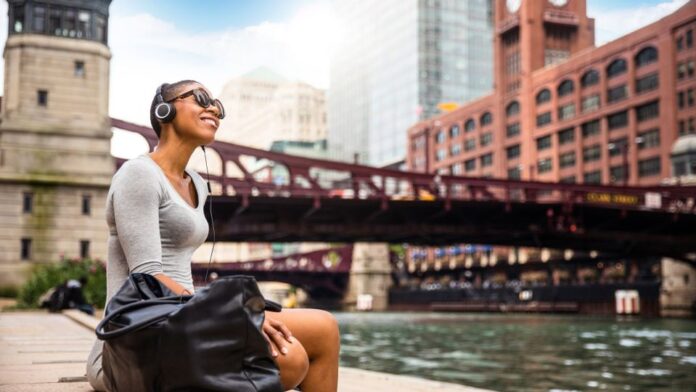From the digital nomad tapping out a blog post on a beach in Bali to the manager checking her emails on a Niseko ski lift, from the full-time freelancer in a coworking space to the engineer coding from his home office, technology has blurred the boundaries between work and play, professional and personal, career and down time. A creative agency might bat around ideas over the ping-pong table; an architectural firm might be at its most productive on retreat. And as the lines between work and life blur, so do the distinctions between business and personal travel. It’s a trend that goes way beyond the tried-and-tested formula of bringing your partner to a conference. Where destinations appeal, professionals around the globe are increasingly adding weekends, or even weeks, to work trips, whether solo, with a partner, or as a family. So established is this hybrid of business and leisure travel that it’s acquired a portmanteau moniker – ‘bleisure travel’. ‘It’s opportunistic: it depends if you’re going to a place you like and that you want to spend time in.’ Worldwide, more than one in three business travellers will add a leisure component to at least one of their business trips this year, said Jeanne Liu of the Global Business Travel Association. ‘It’s people from all different levels: we thought it might be more entry-level, but we found managerial does it as well, although we did find millennials more likely to partake in bleisure than some of their older colleagues,’ she said. ‘It’s opportunistic: it depends if you’re going to a place you like and that you want to spend time in.’ According to Liu, many employers are supportive of bleisure travel. ‘Travel wellbeing relates to job satisfaction, which means people stay productive and stay longer in their jobs,’ she explained. ‘Being able to take your kids or your family, to add some fun elements to a trip, makes that trip much less stressful.’ Australians, who typically work longer hours and face higher travel costs and longer journey times than their peers in Europe, are becoming increasingly receptive to bleisure. Brent Howard and Ann Crowhurst relocated from Melbourne to operate Quest St Leonards, a business-oriented apartment hotel in a vibrant Sydney suburb replete with cafes and art. Crowhurst feels that guests seem more open to bleisure travel than when she first worked in hospitality. ‘We’re probably starting to see more of a trend where the wife might fly up from Melbourne to spend the weekend here rather than the husband doing a quick trip home for the weekend,’ she said. ‘One guy stayed with us from Brisbane on a project for a year and his wife came down every month for three to five days.’ Richard Tonkin, general manager of an environmental protection company, and regular guest of Quest Bundoora in suburban Melbourne, agrees. Tonkin is based in Newcastle but travels frequently both interstate and internationally. A keen photographer, he makes time wherever possible to explore a new destination and will always add at least a weekend to any long-distance work trip. Tonkin researches cities thoroughly to ensure his leisure time isn’t wasted. ‘One of the things I always do before I get to a big city or a new town is book a bike tour,’ he said. ‘It’s a really great way to see a city quickly, and get you out of bed on your first day after a long flight. You get to see a lot more than you would on a walking tour, and you discover things to go back to in the following days.’ Tonkin’s wife, Enza, who works part-time and flexibly, recently joined him on a work trip to Chicago and Illinois. ‘She came with me to a little town in the Midwest where a key supplier is based and roamed the streets, then we had a long weekend in Chicago before a colleague and I went to a trade show, while she did her own thing, mainly shopping,’ he said. ‘Then she and I had a whole bunch of days: we did a cycling tour, hired a car and drove out into the country, went to the art gallery and tried out the local restaurants.’ “The modern bleisure traveller tends to be culturally curious, not to mention interested in food.” According to Howard and Crowhurst, the modern bleisure traveller tends to be culturally curious, not to mention interested in food. So the couple make sure their front office staff stay abreast of not only on what’s new in the local area, but exhibitions and shows around town, and use information sources that go beyond Google. ‘When we’ve got longer-stay guests, we always buy them a Sydney guide, but one that’s got stuff that’s a little off the beaten track,’ said Crowhurst. ‘For a middle-aged couple from Canada, we bought a Sydney suburbs guide with the cafes and the quirky shops and the boutiques; one guest in his early 20s has just come in from Italy, so I’ve bought him one that’s more about the bars and cafes you can find in Sydney.’ For most business travellers, Liu’s research found, there’s only one element deterring them from bleisure: time. It seems ironic that for many individuals the same technology that frees them up to work while they play, and play while they work, also limits their leisure time.


